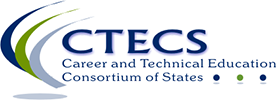Background
Students should already be engaged in defining “who” they are before they attempt to set “realistic” goals and goals that are intrinsically tied to what they want.
Engage Students
It seems strange but most students, even those at the postsecondary level, have never properly defined their goals. To some degree, the education and career plans that emerged over the last decade as essential components, attempt to articulate these goals. Yet these documents are rather static and merely functional from an administrative perspective. What is needed is the organic development of personal career, education, and life goals. Therefore, students may engage with this activity as long as it is truly tied first to them, individually, and what they want out of life.
Steps and Notes
1. Free-write/journal for five minutes to concisely state your life goals. Focus on yourself and what you really want out of life.
2. Revisit and re-define your original goals in terms of these categories. Narrow original definitions broaden and deepen and become more concrete. Prioritize these goals in terms of their importance to you. Goals are something you need to revisit on a regular basis. We are constantly redefining ourselves and what we want. Abstract terms such as happiness should become more tangible and concrete. Big (abstract) goals should be made as concrete as possible and written in a way that you will know when they are achieved. Break the big goals into smaller action steps. Remember that ideas are rarely achievable, but actions are.
- Mental and Physical Health Development Goals
- Education Goals
- Financial and Lifestyle Goals
- Career and Professional Achievement Goals
- Family and Relationship Goals
- Additional types?
3. Complete one of the following:
- a. If your goals are life goals and not prioritized by career choice, which types of careers might enable you to achieve these goals? Describe how the career might bring you closer to achieving your life goals.
- b. If your life goals are also your career goals, which of the other sub-categories of your life goals would best support your career and professional achievement aspirations. Describe the connection between life goals and career goals specifically, in terms of your career choice.
4. What potential barriers might stand in the way of achieving your long-term goals? Nothing worth doing is easily accomplished You should have a short list of behaviors you need to avoid, limit, or overcome in order to get you closer to your big life goals or increase the odds that you might achieve the necessary steps. Barriers such as financing needed for education/business/home/car loans, health issues, competition, bad habits, family obligations, a poor economy, and even personal fears should be addressed.
5. What do you hope to achieve within 3-5 years? Break this down into smaller action steps.
6. What is ONE action step you will commit to taking immediately and achieving over the next 24 hours? Describe how this action relates to your 3-5 year goal. Also describe how your 3-5 year goal relates to your big life goal.
Note: Students should get into the habit of revising their life goals and distinguishing life goals from career goals. Therefore, consistently scheduled review and revision of these goals, both short-term and long-term, is important. The philosophy is that the life goals should produce the career goals, rather than the other way around.
Optionally, if you need help setting goals on a daily basis, watch the following video with really good examples and a focus on writing life goals in a journal: https://www.youtube.com/watch?v=Czru2CuWyxQ&ab_channel=ModernHealthMonk –from How to Design Your Life (My Process for Achieving Goals) by ModernHealthMonk.
Vocabulary
Complete the vocabulary exercises by visiting Quizlet.
(optional) Submit a link to your artifact
If you are sharing a link from the Cloud, click here, paste it into the field, and hit the button to submit.


